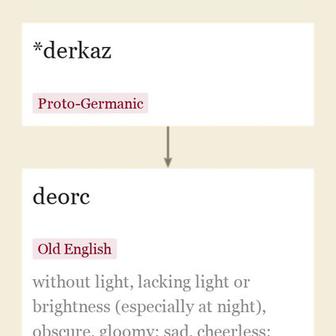far (adj.)
Middle English fer, from Old English feorr "far, remote, distant," from Proto-Germanic *ferera- (cognates: Old Saxon fer, Old Frisian fer, Old Norse fjarre, Dutch ver, Old High German ferro, German fern), probably a development in western Proto-Germanic from the adverb (see far (adv.)). Far East "China, Japan, and surrounding regions" is from 1838.
far (adv.)
Middle English fer, from Old English feor "to a great distance, long ago," from Proto-Germanic *ferro (source also of Old Saxon fer, Old Frisian fir, Old Norse fiarre, Old High German fer, Gothic fairra), from PIE root *per- (1), base of words for "through, forward," with extended senses such as "across, beyond" (source also of Sanskrit parah "farther, remote, ulterior," Hittite para "outside of," Greek pera "across, beyond," Latin per "through," Old Irish ire "farther"). For vowel change, see dark (adj.). Paired with wide to mean "everywhere" since 9c.
Trends of far
updated on May 12, 2019

